The respondent, an Algerian man, left the city of Bihac (BiH) on 2nd September, 2020 in a group with five other Algerians, aged between 22 and 30 years old. After 12 days of travel they arrived in Trieste (ITA). They entered into Italy near the municipality of San Dorligo della Valle (45.607871, 13.857776), in the early morning on the 14th September. While the group was walking along the SP12B road, they were tracked down by what was described as a military convoy, composed of a car and a van. The three people onboard, described by the respondent as being military officers, stopped them at the side of the road and called the Italian police, who arrived shortly after with a van.
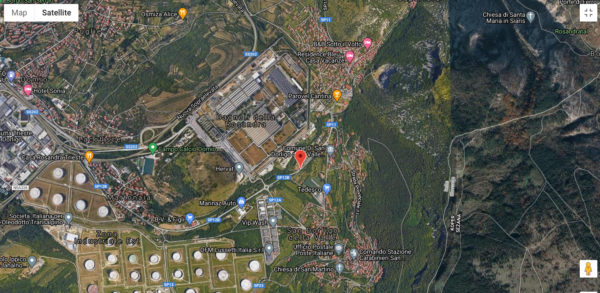
The captured group were then transferred with the van to a police station in Fernetti [exact location], a site with a military tent erected for identification procedures of people on the move and asylum seekers. The respondent claims that he found himself together with approximately 60 other people from Afghanistan, Bangladesh and Pakistan, in addition to a person from Morocco. The respondent stated that many of the people held at the site, were minors or had been fingerprinted previously in Greece.
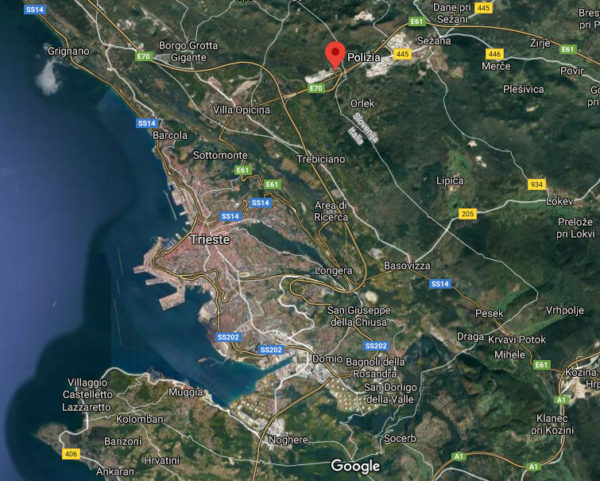
The people detained in the tent were seperated by nationality. Each person of the transit group was questioned and processed individually in a separate, smaller tent, described as a small silo, the others had to wait in a small room which he describes as a “prison-room”. Personal data was gathered, fingerprints were taken as well as photos of their faces. The respondent clearly expressed the will to seek asylum in Italy.
The assigned translator for the respondent and his group, of Moroccan origin, was already attending to one person from Morocco who was present when they arrived. The police officers also searched him and confiscated his phone, a power bank and a watch, which were put inside a plastic bag. After that, the respondent had to sign 3 different documents, one of them – an identification and domicile paper – hidden and preserved by the respondent.
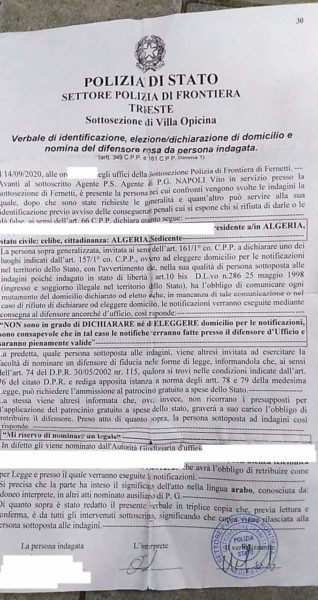
“When they deport you, they make you sign this paper so that they can say you accept it. And of course, you sign it. who care about you? They just say: ‘sign’ and you sign, because you don’t have power and there is no one listening to you.”
The captured transit group remained in the police station from 08:00 until 17:00. The food was distributed collectively and due to a massive amount of people, some were left without. At some point the respondent requested to go to the
toilet and he was taken outside, which allowed him to understand the area where he was. The respondent saw a reception center in front of him.
At the end of the identification procedure, the police took five of the Algerians from the transit group. A sixth person was taken away, however, the respondent stated that this was because he had been fingerprinted in Greece. Some other Moroccans who were present in the tent were also kept there, which the respondent suggests was due to help from the translator in assisting their access to asylum.
“Translator plays a big role. Maybe 80%”
The remaining five people from Algeria were put inside a van. The respondent claims that he clearly saw the officers carrying the bag with his personal items, which he thought they would return to him once left at the next destination. The vehicle did neither have windows nor light and the respondent described experiencing difficulties to breath during the ride. At this point the people-on-the-move received a small bottle of water and a small cracker for the first time since the apprehension.
“They play with you. You just think just when is it finish.”
Once they were sitting inside the van, the group realized that they were about to be deported to Slovenia and they asked what was going on. The police officers reassured them that they would stay in Trieste. The van then moved on: inside it was very hot and from the ventilation came out hot air. The respondent knocked on a window to attract the attention of the agents, who stopped the van, got out of the vehicle and opened the hatch to ask for explanations of why they were knocking on the window.
There was a squabble, and one of the two officers punched the respondent, but was immediately stopped by his colleague who invited him to calm down. After the incident, they continued to drive and they arrived in an area, which was described as a road border crossing (likely Pesek-Kozina) between Italy and Slovenia. There, the group found a Slovenian police van with police officers waiting for them. They were transferred very quickly from the Italian police van to the Slovenian van: according to the respondent, officers were looking around with circumspection, as if they were worried about being noticed during the operation ongoing.
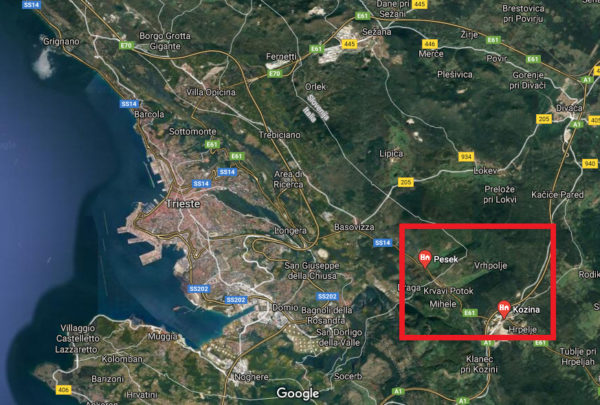
Once the captured transit group were transferred to the Slovenian police van, they were taken in a police station, in Kozina, Slovenia. Here the respondent asked for his personal belongings, but the Slovenian police replied that the Italian police had not given them anything. The respondent doesn’t know if his belongings were kept by the Italian police officers or if the Slovenian police officers lied to him, keeping his belongings.
In the station in Kozina, the officers took the prints of their thumbs of both hands, and realized that the respondent was already registered in the police database, due to previous entrance he had made into Slovenia (on this occasion he had also signed some documents). Later on, the group was transferred from Kozina to Ljubljana for a Covid-19 screening. After that, they returned to Kozina, where
they spent the night detained. They stayed in this this location for what the respondent estimated to be a whole night. During this detention the group members could use the toilet and were handed another small bottle of water but were not provided with any food.
The next morning (15th September) the group were transferred to Croatia, through the Socerga/Pozane border crossing. Here the Slovenian police photographed the documents that they had signed and threw them away in the garbage, before giving the group over to the Croatian police. The respondent, also in this occasion, managed to hide one Italian document, putting it inside his underwear (see previous photograph).
The respondent identified the van that they were put in afterwards to be a Croatian police vehicle. Concerning the ride to Croatia he described that the driver was driving very bumpy, braking very sharply at any given moment.
“you know, they really try to make you hate yourself. For what you have done and so you never try again to cross border to Croatia.”
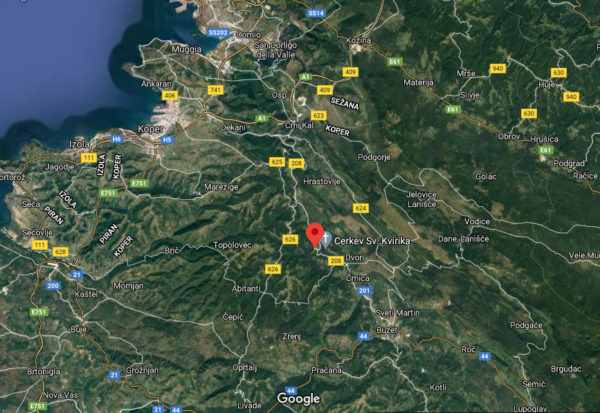
“If they deport you in the day you stay in the police car all day till it gets night. If they deport you in the night, they let you go directly.”
In Croatia they had to wait for 15 hours, from 10:00 to 01:00 the next day (16th September) in the van. During this time they were not provided with any food or water and just left alone in the car. While they were waiting several other people-on-the-move were brought into the van by Croatian police officers, including a Bangladeshi man. Finally, at around 01:00 two Croatian police officers drove the van to the border of Bosnian territory, about 10 kilometers out of Bihac.
When they arrived to this location, the respondent described that a Croatian officer wearing a dark uniform and a black ski-mask with a big German Shepherd told them to leave the van and line up in a file. The group-members were then told to get undressed to their boxers and a T-shirt. The officer took all of the clothes in a bin bag and set them on fire. Another officer was waiting behind the wheel of the vehicle during the procedure. The men then had to line up in a row, crowded closely together. The policeman yelled: “haide, go,go,go,go” and let the dog off the leash, which immediately snapped at the arm of the man in the last position in the row. The other men were able to run away in this way, but the last one apparently received a severe wound in his arm. The respondent then walked another 24 hours back to Velika Kladusa.
The indicated location in this report refers to the site of apprehension, not to the pushback itself.
